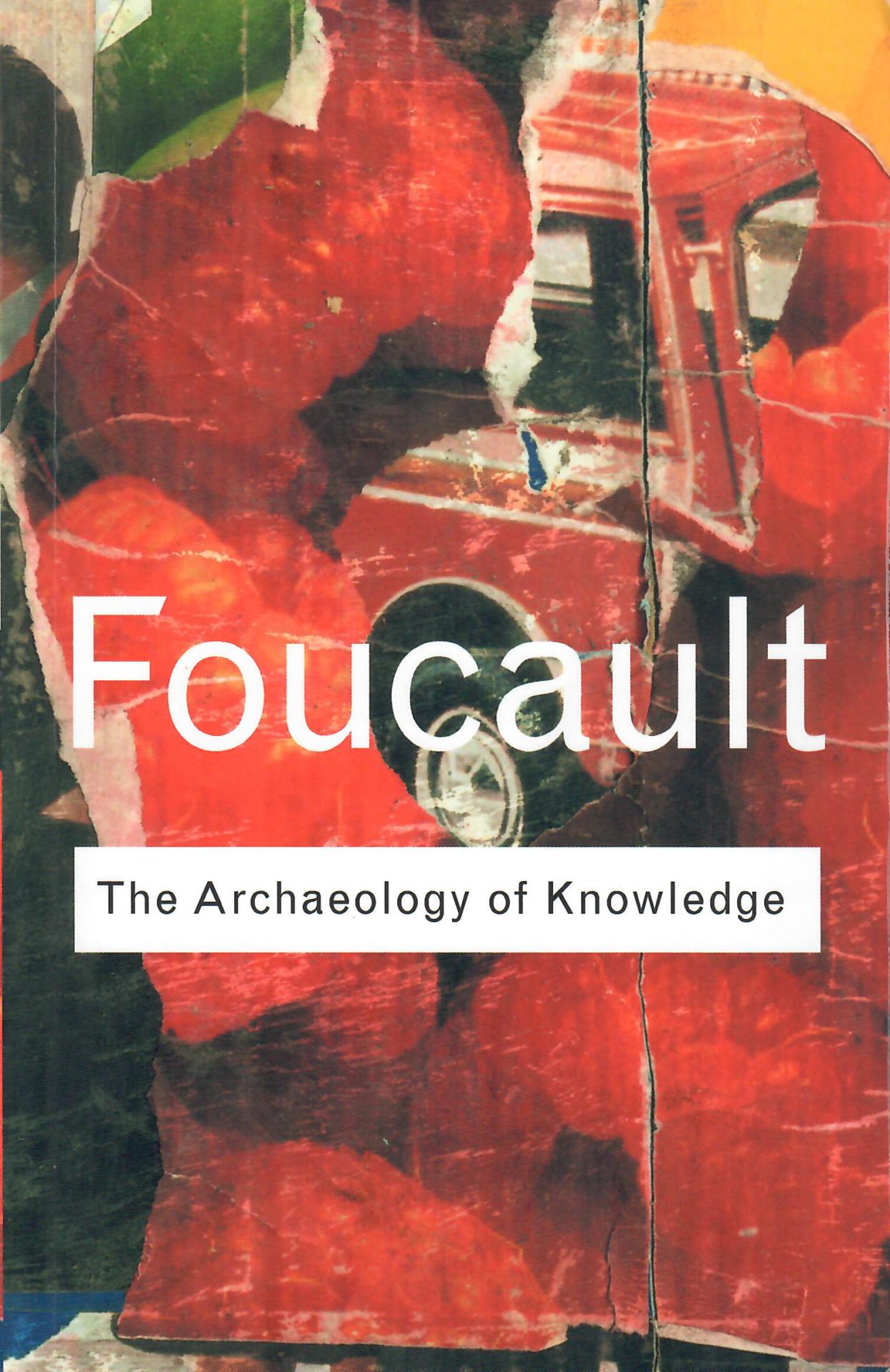Excavating discourse with brutal precision

The Archaeology of Knowledge is the second actual Michel Foucault book I’ve read, and it’s going to have to be the last for a while, as I have a lot of other stuff to read towards my dissertation now. This one was of far from peripheral interest, however: at the core of Foucault’s notion of archaeology (which is entirely separate from the physical archaeology we usually talk about) is something that he calls ‘the archive’. ‘The archive’ is not an accumulation of knowledge, in the way that we might talk about an abstract ‘library’ of a culture’s literary production, but a more abstruse, and curiously more concrete thing, which I would probably do a very bad job of explaining.
Explaining is definitely not what I am setting out to do, however. Foucault may be very hard to understand, but he admits and requires very little explanation – I wouldn’t have minded a concrete example at every step of the argument presented in this book, but it would have made it several times as long, and probably much harder to follow as a whole. Beyond that, there is not really any way to paraphrase the words, or to reduce them to anything else by way of analogy. Foucault speaks very precisely about the elements of discourse, and the meat of this book is a description of the mechanisms that form what he calls a ‘discursive formation’ – which is to say the body of rules that underpins the actual collection of historically situated statements that can be said to constitute a discourse.
A discourse may be coextensive with, for example, an academic discipline like economics, or a body of professional knowledge and practice, like medicine. It may also be something that overlaps to a greater or lesser degree with such ‘archaeological objects’. Foucault’s aim is to expose the ideology that structures the way we usually talk about such things, in the discourse that he refers to (somewhat disparagingly) as the ‘history of ideas’. The continuities, periodicities, causalities and reassuringly coherent narratives of such accounts are discarded ruthlessly at the outset, and the text goes hunting instead for regularities in the dispersal of discontinuities. This confusingly abstruse aim might be understood in similar terms to a scientific analysis of statistical data, although Foucault’s data are not numerical, and the patterns he is seeking are not so easily discerned. What he is looking for, very roughly, is any set of distinctive regularities in the construction and validation of statements that could indicate the existence of a discursive formation as something independent of his own discourse’s tendency to produce such an object.
As usual, Foucault’s rigour is beyond the capacity or stamina of most readers, myself included. This is a brutally precise project, which rejects out of hand the majority of tools that are habitually used in related pursuits. However, without being able to follow or critique his arguments in their entirety, they make a great deal of sense to me. There are rules that make it possible, within a given discourse, to say certain things, and only those things; to see certain objects (diseases in medicine, particles in particle physics, etc), and only those objects; to think in terms of certain concepts (evolution in biology, rational self-interest in economics etc), and only those concepts. For a subject situated within a discourse, these rules are invisible, by definition, because they are not among the objects or concepts constituted by that discourse. Foucault concedes that there are such rules structuring his own discourse, and he does not shy away either from attempting to excavate them to some degree, or from the admission that this is an ultimately futile effort.
You may think that you have very little idea, from my description, what this book is actually about. You’re right. It talks in the abstract about methods that Foucault developed in a series of concrete research projects. It generalises, to a degree, from an intellectual practice that is formed in the mould of very particular needs, but its core principle is that the objects it offers for discussion are irreducibly particular. As I’ve said, to attempt to paraphrase any part of Foucault’s thinking would be an exercise in futility; perhaps the best I can do is to repeat his adamant assertion that his writing is neither history nor philosophy, but something else, for which he is compelled to appropriate the term ‘archaeology’.